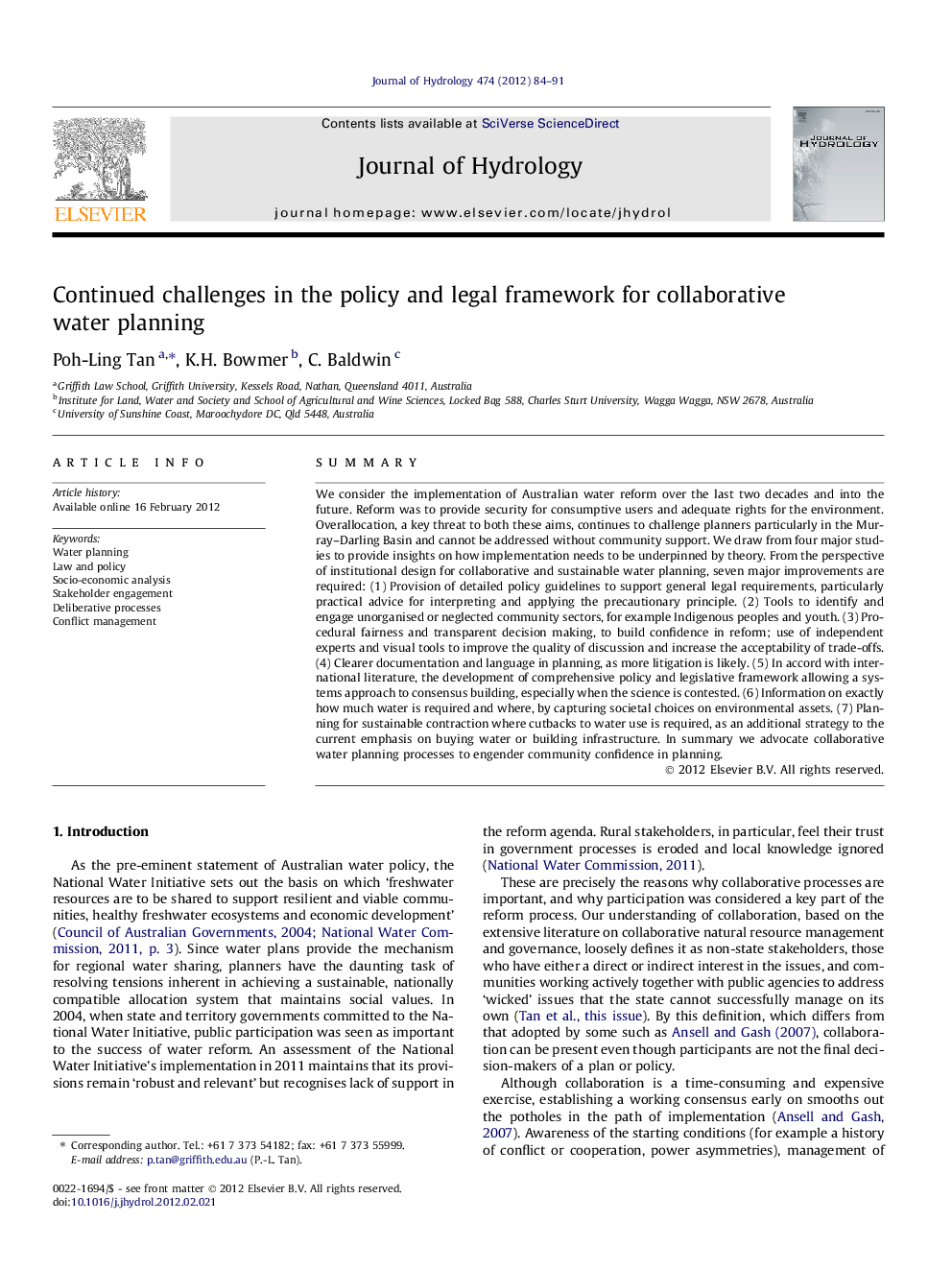| کد مقاله | کد نشریه | سال انتشار | مقاله انگلیسی | نسخه تمام متن |
|---|---|---|---|---|
| 4576693 | 1629974 | 2012 | 8 صفحه PDF | دانلود رایگان |

SummaryWe consider the implementation of Australian water reform over the last two decades and into the future. Reform was to provide security for consumptive users and adequate rights for the environment. Overallocation, a key threat to both these aims, continues to challenge planners particularly in the Murray–Darling Basin and cannot be addressed without community support. We draw from four major studies to provide insights on how implementation needs to be underpinned by theory. From the perspective of institutional design for collaborative and sustainable water planning, seven major improvements are required: (1) Provision of detailed policy guidelines to support general legal requirements, particularly practical advice for interpreting and applying the precautionary principle. (2) Tools to identify and engage unorganised or neglected community sectors, for example Indigenous peoples and youth. (3) Procedural fairness and transparent decision making, to build confidence in reform; use of independent experts and visual tools to improve the quality of discussion and increase the acceptability of trade-offs. (4) Clearer documentation and language in planning, as more litigation is likely. (5) In accord with international literature, the development of comprehensive policy and legislative framework allowing a systems approach to consensus building, especially when the science is contested. (6) Information on exactly how much water is required and where, by capturing societal choices on environmental assets. (7) Planning for sustainable contraction where cutbacks to water use is required, as an additional strategy to the current emphasis on buying water or building infrastructure. In summary we advocate collaborative water planning processes to engender community confidence in planning.
► Fine-tuning of policy and legislation still needed after over 15 years of water reform.
► The active involvement of local communities in water planning can be sensitively carried out.
► Effective socio-economic analysis needs to incorporate cultural and community values.
► Deliberative processes are able to increase transparency of water planning.
► A key challenge remains: the role of planning for sustainable contraction.
Journal: Journal of Hydrology - Volume 474, 12 December 2012, Pages 84–91